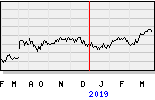
Big business must use its influence to drive faster action on climate change. Hannah Hislop and Subhi Barakat, Climate Action Global Sustainability Managers at Unilever, explain why.
Our Climate Transition Action Plan sets out the steps we will take to reduce operational emissions by 100% by 2030 and achieve net zero across our value chain by 2039.
In a series of interviews, Unilever is introducing some of the many people helping to deliver its action plan and making change happen. Hannah Hislop and Subhi Barakat, Unilever’s Climate Action Global Sustainability Managers, are part of the team ensuring our business is using its voice to advocate for real change now.
Subhi Barakat, Unilever’s Climate Action Global Sustainability Manager
Hannah Hislop, Unilever’s Climate Action Global Sustainability Manager
What does your job involve?
Subhi Barakat: Our role involves supporting the business to deliver our own climate goals, while leveraging Unilever’s influence to drive the system-level change that’s needed to enable not just Unilever and other businesses but also entire economies to transition to net zero emissions.
Hannah Hislop: We’re part of the global team looking after Unilever’s overarching sustainability strategy, stakeholder partnerships and advocacy. The team is helping the business to navigate sustainability challenges and engage in the external world, driving the systemic change we need to tackle all sorts of issues, from climate change to deforestation to social inequality.
What first drew you both to the role?
HH: I joined Unilever ten years ago from an environmental policy think tank. I started out working on packaging and recycling, and it was clear companies needed supportive government policies to be able to deliver our packaging targets, for example the introduction of recycling facilities in countries that don’t have formal waste systems. Then I spent several years working on eliminating deforestation, which is such an important part of the climate picture, so it was quite a natural step to start working on climate more broadly.
SB: I originally trained as an electrical engineer, working on semiconductor physics, but then went to law school and became a public international lawyer and multilateral treaty negotiator. Most of my work with the UN and NGOs saw me supporting very poor countries with their national green growth strategies and in the UN climate negotiations. After working on international frameworks for a long time, I decided to see what I could do in the private sector to help drive action to deliver the global goals I helped put in place.
When I started looking at which private sector actors I’d want to work for, I needed to find an organisation that had integrity, a good reputation, and showed leadership. There were only a few companies on the list and Unilever was one of them. It was already trying to deliver change at an international level and had the muscle and clout to make a difference.
How is Unilever accelerating climate action?
HH: We use the ‘onion model’ of change in our team. At the bulb of the onion, you have what you can do with your own operations. That’s very important because it demonstrates credibility and it’s vital that we walk the talk. Unilever has reduced operational emissions by 64% since 2015, which puts us on track in this area. But it’s also only a small proportion of our emissions, about 2%, so we know we need to do a lot more.
The next layer out is our value chain, which is where most of our emissions lie – over 60% come from raw materials and packaging. This is where we are focused on engaging our suppliers and supporting those with highest impact to take the steps they need to get climate-fit.
Then come our brands and how they can commercialise sustainability in terms of their innovation and consumer marketing. For example, our use of refills and changes in product formulations and our strategy on plant-based alternatives to meat and dairy.
The last layer is our wider influence on society and it’s huge. It includes high-level advocacy in support of the Paris Agreement goals and work on quite specific issues on nature and the voluntary carbon market. We’re also part of trade associations and business coalitions helping to speed up climate action.
see & read more on
https://www.unilever.com/news/news-search/2022/with-great-power-comes-great-opportunity/?utm_source=SignUp&utm_medium=Email&utm_campaign=NewsSignUp
